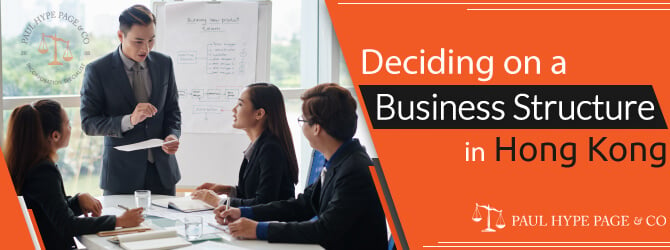Companies in Hong Kong are governed by the Companies Ordinance (to be referred to as “the Ordinance”). The Ordinance dictates the laws for setting, operating, and holding meetings among the shareholders of a company. When holding meetings, the Ordinance dictates the quorum, time frame for notice and the possible agenda of meetings held among shareholders.
The Ordinance specifies two types of meetings that the shareholders of a company can hold. These are annual general meetings (AGMs) and extraordinary general meetings (EGMs). This article will discuss EGM in Hong Kong and its details.
Definition of an EGM
An extraordinary general meeting or EGM is a special type of meeting to discuss crucial issues in a company. Usually, such issues are treated as urgent and are given priority. An EGM brings together shareholders and company directors to discuss pertinent issues affecting a company.
The Ordinance sets conditions for convening an EGM but imposes no specific limits on the meeting agenda. Unlike other countries, the Ordinance does not specify the areas of interest that could prompt an EGM.
Extraordinary General Meetings (EGMs) and Their Role in Hong Kong’s Corporate Governance
Nevertheless, an EGM’s agenda always consists of specific areas of interest which are raised by the shareholders of a company. An EGM in Hong Kong can be held at any time within the financial year, as long as the shareholders adhere to the procedures specified by the Ordinance.
For public and limited liability companies, the fiscal year starts on April 1 and ends on March 31 of every year.
Extraordinary general meetings provide the shareholders with an opportunity to voice their complaints before the next AGM which may take place in the distant future. The Ordinance specifies that the meeting should bring together either at least 5% of shareholders with voting rights or half of all shareholders, depending on the circumstances. These shareholders are needed to vote on decisions on behalf of other shareholders who might not be present at the EGM.
An EGM differs from annual general meetings or AGMs. AGMs are mandatory meetings that the Ordinance specifies are to be convened within three months after the end of a financial year if a company is a public company. Private and limited liability companies are allowed six months after the end of every fiscal year to convene an AGM. There are many pertinent differences between an AGM and EGM as they apply to Hong Kong’s corporate environment.
Differences between an AGM and an EGM
The most striking difference between an AGM and EGM lies in their timing. While an AGM is held at the end of every financial year, an EGM may be convened at any time within a financial year.
EGMs can be considered to be miniature meetings that are aimed at amending, passing, and approving existing internal company business matters. For instance, an EGM may be convened when a company makes plans to rebrand its products. This decision may affect profits and therefore requires the collective decision of shareholders. Waiting for an AGM might be disadvantageous; thus, an EGM is required in such a situation.
An EGM also differs from an AGM in that an AGM has a full agenda while an EGM does not. An AGM’s agenda may consist of the following: review of the company’s audited accounts, election of the executive committee, discussion of annual strategies, analysis of company reports, and other similar matters. An EGM’s agenda, on the other hand, may be comprised of a variety of topics.
Key Procedures and Regulations Governing EGMs and AGMs in Hong Kong
An EGM’s agenda mostly affects business continuity, which can be defined as the likelihood of a business operating within the foreseeable future. When disagreements threaten the continuity of the company, it is necessary to convene an EGM to correct those issues after the approval of shareholders.
The Ordinance specifies that the notice of an AGM must be issued at least 21 days before the day of the meeting. In contrast to this, an EGM’s notice must be issued within at least four days before the meeting is convened.
Notices are crucial as they provide shareholders with adequate time to prepare for these AGMs or EGMs. As such, the agenda must be communicated to allow the shareholders adequate time to deliberate over the issues raised. Resolutions passed at an EGM carry the same weight as those decided during an AGM.
The quorum for an EGM and AGM is either 15 voting members or 5% of total voting rights, whichever yields the greater quorum.
However, if the quorum is not reached within half an hour from the start of the meeting, the chairperson shall adjourn the meeting and reconvene it within seven days of the last meeting. The number of shareholders who are in attendance during the next meeting will become the quorum for the meeting to start. The decisions of both the AGM and EGM shall be subject to voting by way of a secret ballot as specified by the Ordinance.
People Who Can Call for an EGM
The Ordinance specifies the identities of the people who can call for an EGM. Under normal circumstances, the directors of a company have the power to call an EGM. Shareholders can raise pertinent issues to directors, prompting them to schedule an EGM with a specified date, venue, and agenda. The EGM is to be attended by the shareholders with at least 5% of the total voting rights.
Company employees, except the company secretary, are exempted from attending EGMs as well as AGMs. An executive committee appointed by shareholders is to oversee the running of the EGM.
If shareholders cannot call an EGM, those with over half the voting rights may convene one. If directors don’t respond to EGM requests within three months, shareholders with majority voting rights can convene the meeting.
Reasons Why An EGM May Be Conducted
EGMs are held for various reasons impacting the company’s business continuity. The following are some of the more common reasons why EGMs may be conducted by companies in Hong Kong:
Changing of directors – sometimes, shareholders may want to impeach or remove directors. However, this can only be done by way of voting. An EGM is necessary to seek shareholder approval on whether it is prudent to remove a director.
If a director is removed, a consequent EGM must be held in which a new director is appointed by the shareholders.
Withdrawal of a major shareholder – when a major shareholder withdraws from the board of a company, it may make it difficult for the company to run its operations smoothly. As a result, an EGM is needed to discuss the next steps to be taken by the company.
The withdrawal of a major shareholder also affects voting rights. An EGM is therefore needed to redistribute the voting rights in a manner that is deemed fair by shareholders.
Changing of company name – companies may need to change their name during their operations. This may be due to mergers acquisitions or rebranding. Such a resolution requires the approval of shareholders to pass.
Other reasons – The board of directors may not have the exclusive rights to make certain decisions on behalf of shareholders. Therefore, an EGM is needed to approve such board decisions before their implementation.
The preceding reasons provide an overview of the critical issues that could warrant the need to convene an EGM. They highlight some of the key agendas that constitute an EGM.
Conclusion
An EGM does not substitute an AGM. Although an EGM may be smaller than an AGM, the resolutions passed in both meetings bear the same weight. Cancelling an EGM in Hong Kong is challenging since laws permit a second meeting without requiring a quorum. EGMs serve as special meetings to discuss matters that cannot await AGMs.
As long as there is the required shareholder attendance, the EGM in Hong Kong may be convened within four days’ notice. The Ordinance allows for the extension of the notice period to allow for a larger quorum.
Ultimately, every company in Hong Kong must exercise proper judgment in deciding when to hold an EGM, or even whether to hold one at all. Companies holding EGMs at the right time and for valid reasons can quickly find solutions to pressing issues.






